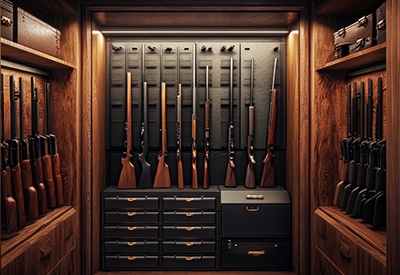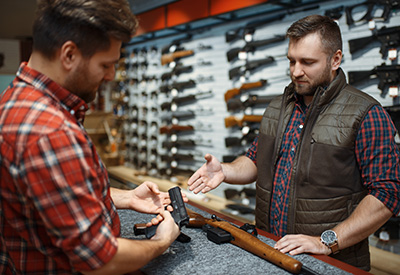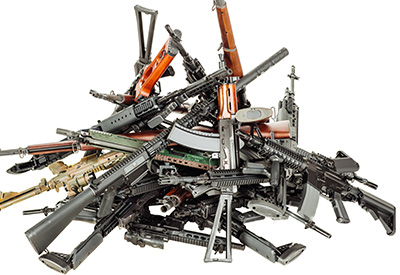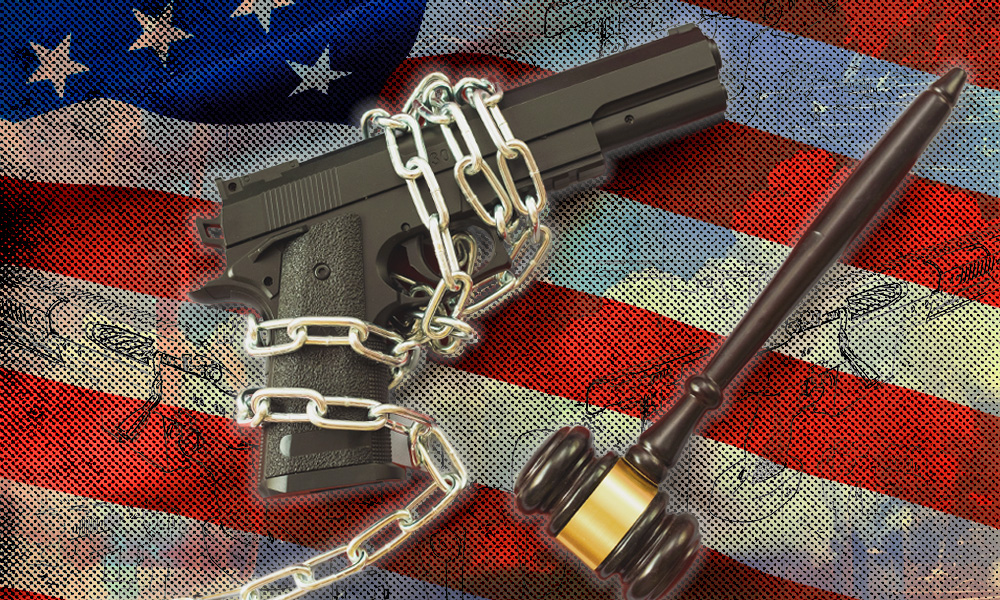Estate planning for firearms presents challenges that often leave even experienced gun owners feeling uncertain about their options. The complexity stems from a web of federal and state regulations that govern firearms transfer, coupled with common misconceptions about the necessary legal documents. Many gun owners find themselves wondering whether they should utilize a specialized trust or if their standard estate planning tools will suffice. This uncertainty can lead to costly mistakes or problems for their heirs.
The stakes are particularly high when it comes to firearms estate planning because guns aren't treated like other personal property in the eyes of the law. The importance of proper firearms estate planning extends far beyond simply designating who receives your guns after your death. Each firearm transfer must comply with specific federal and state regulations, and failure to plan properly could result in serious consequences for your beneficiaries. These laws can vary significantly depending on your location and the types of firearms in your collection. The consequences might include criminal penalties, loss of inheritance rights or even confiscation of the firearms you intended to pass down as part of your family's legacy.
What are estate planning options for firearms?

When it comes to transferring firearms through your estate plan, you have several options available. The key is understanding which tools best suit your specific situation. The most common methods include revocable living trusts, special gun trusts (also known as NFA trusts) and wills. Each option offers distinct advantages and limitations that must be carefully weighed against your specific circumstances.
The critical first step in choosing the right estate planning strategy is understanding exactly what types of firearms you own. Standard firearms, which include most commonly owned handguns, rifles and shotguns, often can be handled differently than weapons regulated under the National Firearms Act (NFA). NFA-regulated items, including short-barreled rifles and shotguns, machine guns, suppressors and other specially regulated firearms, require extensive documentation, specific handling procedures and careful attention to both federal and state compliance requirements. The distinction between standard and NFA-regulated firearms is crucial because it directly impacts which estate planning tools may best serve your needs.
Can you use a revocable living trust for firearms?
For most gun owners who possess standard firearms, a revocable living trust can serve as an effective and efficient transfer tool. These trusts offer remarkable flexibility while providing important protections for both your collection and your heirs. A well-crafted revocable living trust can include specific provisions for firearms while managing them alongside your other assets, streamlining the administration process for your estate.
The advantages of using a revocable living trust for standard firearms transfer extend beyond basic asset management. These trusts provide privacy protection for your collection, helping keep details of your firearms ownership out of public records. They also offer the ability to include detailed instructions for proper storage, maintenance and transfer procedures, ensuring your collection is handled according to your wishes and in compliance with applicable laws.


How do you properly transfer standard firearms through your estate plan?

Even when using a revocable living trust for standard firearms (non-NFA items), proper transfer procedures must be followed to maintain legal compliance. It’s often recommended that that any transfer of a firearm to a beneficiary, whether during your lifetime or after death, should be conducted through a Federal Firearms Licensed (FFL) gun store. The FFL dealer will conduct the required background check using the National Instant Criminal Background Check System (NICS) to ensure the recipient is legally eligible to possess firearms.
This process is crucial because it provides several important protections. First, it ensures that the transfer complies with federal law requiring background checks for firearms transfers. Second, it creates a clear paper trail documenting the legal transfer of the firearms. Third, it helps protect both the trustee and the beneficiary by verifying the recipient's eligibility to possess firearms before the transfer occurs.
The complexity of firearms transfers becomes even more apparent when considering state-specific requirements. Some states have implemented their own registration systems and additional requirements that go beyond federal standards. These might include mandatory registration of all firearms with state authorities; special permits or licenses for firearm ownership; mandatory waiting periods between purchase and transfer; state-level background checks in addition to the federal NICS check; and specific documentation requirements for private transfers. A well-crafted trust should include provisions requiring trustees to comply with both federal and state transfer requirements.
When and why do you use a special gun trust?
National Firearms Act (NFA) weapons represent a unique category of firearms that face stringent federal regulations far beyond those governing standard firearms. An NFA trust provides crucial legal protections and operational flexibility that become essential when dealing with these heavily regulated weapons. Each transfer of an NFA weapon must be approved by the Bureau of Alcohol, Tobacco, Firearms and Explosives (ATF), a process that can take several months and involves detailed background checks.
During your lifetime, the gun trust can authorize multiple users to legally possess and use the NFA weapons, something that's particularly valuable for family members or close associates who might need access to the firearms. Without a gun trust, only the registered owner can legally possess or use the NFA weapon. This means that even a spouse living in the same household could technically violate federal law by accessing the firearm in the owner's absence.
Gun trusts also provide essential protection against accidental violations of firearms laws. These trusts typically include detailed compliance instructions specific to NFA weapons, helping trustees and beneficiaries understand their obligations under federal law. For example, the trust document might specify proper storage requirements, transportation guidelines and procedures for maintaining required documentation.
Without a gun trust, your executor would need to deal with the intricate ATF approval process while simultaneously managing other estate matters. This could lead to delays, complications or even accidental violations of federal law. A gun trust simplifies this process by providing clear instructions and establishing a framework for compliant transfers. In addition, gun trusts offer important privacy benefits. While standard probate proceedings are typically public record, a properly structured gun trust can help maintain confidentiality about your NFA weapons collection.
The trust can also include specific provisions for changing circumstances. For example, it might provide guidance for situations where a beneficiary becomes prohibited from possessing firearms, moves to a state with stricter regulations or faces other legal restrictions.
Another crucial aspect of gun trusts is their role in multi-generational planning. These trusts can be structured to provide for the orderly transfer of NFA weapons across multiple generations while maintaining compliance with federal regulations. This can be particularly important for family collections or historically significant firearms that you want to preserve as part of your family's heritage.
What firearms require a specialized gun trust under the National Firearms Act?

As mentioned, the NFA regulates several specific categories of firearms and related equipment. They include:
- Machine guns. These are weapons that can fire more than one round with a single trigger pull. This category includes fully automatic weapons and any weapon that can be readily converted to fire automatically. It's important to note that only machine guns manufactured and registered before May 19, 1986, can be legally owned by civilians.
- Short-barreled rifles (SBRs). These are rifles with a barrel length less than 16 inches or an overall length less than 26 inches. The distinction is important because many popular firearms, like AR-15 style rifles, can become NFA items if modified to have a shorter barrel.
- Short-barreled shotguns (SBS). Similar to SBRs, these are shotguns with a barrel length less than 18 inches or an overall length less than 26 inches. The shorter length makes them more maneuverable but also places them under stricter regulation.
- Suppressors (silencers). Any device designed to reduce the sound signature of a firearm is regulated under the NFA. This includes not only complete suppressors but also any parts designed specifically for constructing a suppressor.
- Destructive devices. This category includes explosive weapons like grenades, bombs and missiles, as well as firearms with a bore diameter larger than .50 caliber (with some sporting exceptions).
- Any other weapons (AOW). This is a catch-all category that includes disguised firearms (like pen guns), smooth-bore pistols and certain other unusual weapons. The definition can be complex, and classification often depends on specific features.
Conclusion
The complexity of firearms estate planning shouldn't deter you from taking necessary action to protect your collection and your heirs. Whether you own standard firearms that can be managed through a revocable living trust or NFA weapons requiring a specialized gun trust, the important step is creating a legally sound plan before circumstances arise that could complicate transfers. Working with an experienced estate planning attorney who understands firearms law will help ensure your collection transfers smoothly and legally to future generations.



